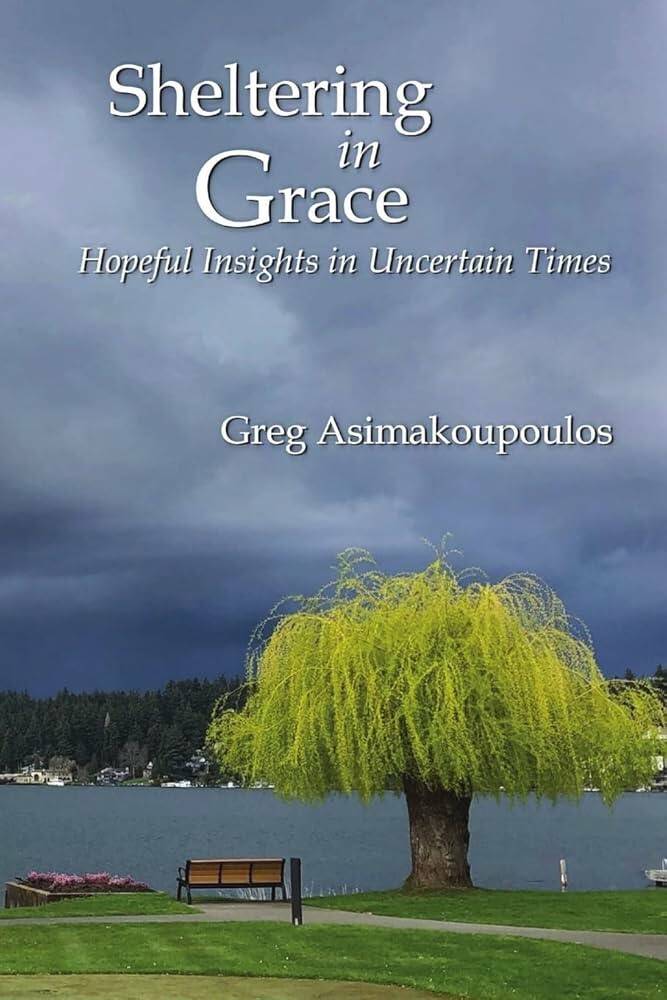Five years ago last month an unexpected visitor from China pulled up at the curb in front of our house and made her way into our living room. We had no prior warning that she would be coming. She said her name was Coronavirus-19, but that we could call her COVID for short. We weren’t quite sure what this international guest had in mind, but she proved to be quite demanding.
COVID rearranged our daily routines big time. She insisted that we wear masks. She demanded that we remain socially distant from each other. She even taught us phrases we weren’t accustomed to using. Words like lockdown and sheltering in place and zoom meetings. She kept us from going to the office, going to school and going to church. And she remained deaf to our complaints. When she didn’t leave as soon as we had anticipated she would, we found ways to communicate that her presence wasn’t welcome. Vaccines and boosters were employed to show her the door.
Overnight my job at a faith-based retirement community was undermined by the pandemic. There would be no in-person Bible studies, hymn-sings or worship services. Calling on patients in the skill nursing and memory care wings were forbidden. Visits with residents in their apartments were put on hold.
As we followed the mandates and went into lockdown, the CEO of our organization sent out a nationwide memo. She instructed the chaplains at our fifteen campuses across the country to begin offering inspirational messages each day. These five-minute video meditations would be broadcast on our closed-circuit television system.
Having worked in broadcasting before carving out a career as a pastor, I was comfortable with the assignment. The five-day-a-week commitment awakened my spirit of creativity and provided me with a tangible outlet for being the voice (and face) of encouragement.
In the beginning I scripted my morning messages and distributed a printed version to those residents who were not able to watch on television. After six months of broadcasts, I submitted my written homilies to a publisher. Because these “daily vitamins” were intended to be a source of encouragement and an infusion of trusting God for good outcomes, the book that resulted was titled “Sheltering in Grace.” I especially liked the play on words. Sheltering in place provided our residents a reminder to draw near to the enveloping presence of the Almighty.
The cover of the book featured a photo of a 110-year-old willow tree that had collapsed and died only to unexpectedly regenerate and find health again. The reborn tree was an image of what we hoped for in our country once the pandemic had run its course.
When COVID eventually gave us our guest rooms (and our routines) back again, I continued to record videos for Covenant Shores as part of my job as campus chaplain. What had begun against the backdrop of adversity became a valued contribution to normal life.
When I retired nearly two years ago, I continued to produce daily meditations for those subscribers who were encouraged by my efforts. My daily offerings are now called “My Rhymes and Reasons” (in keeping with my weekly blog) and can be accessed through YouTube.
Looking back over the past five years, I have come to see a practical application of that familiar passage found in the Old Testament book of Jeremiah. The ancient prophet conveys the words of the Lord to the nation of Israel despairing of hope while being held hostage. God says, “I know the plans I have for you. Plans for good and not for evil, to give you a future and a hope.”(Jeremiah 29:11)
For me, a book and a daily podcast were brought into being by a dreaded season in our national history. And I am not alone. For others around me, post-COVID life is enriched by opportunities and experiences that were birthed in the pandemic.
Guest columnist Greg Asimakoupoulos is a former chaplain at Covenant Living at the Shores in Mercer Island.



